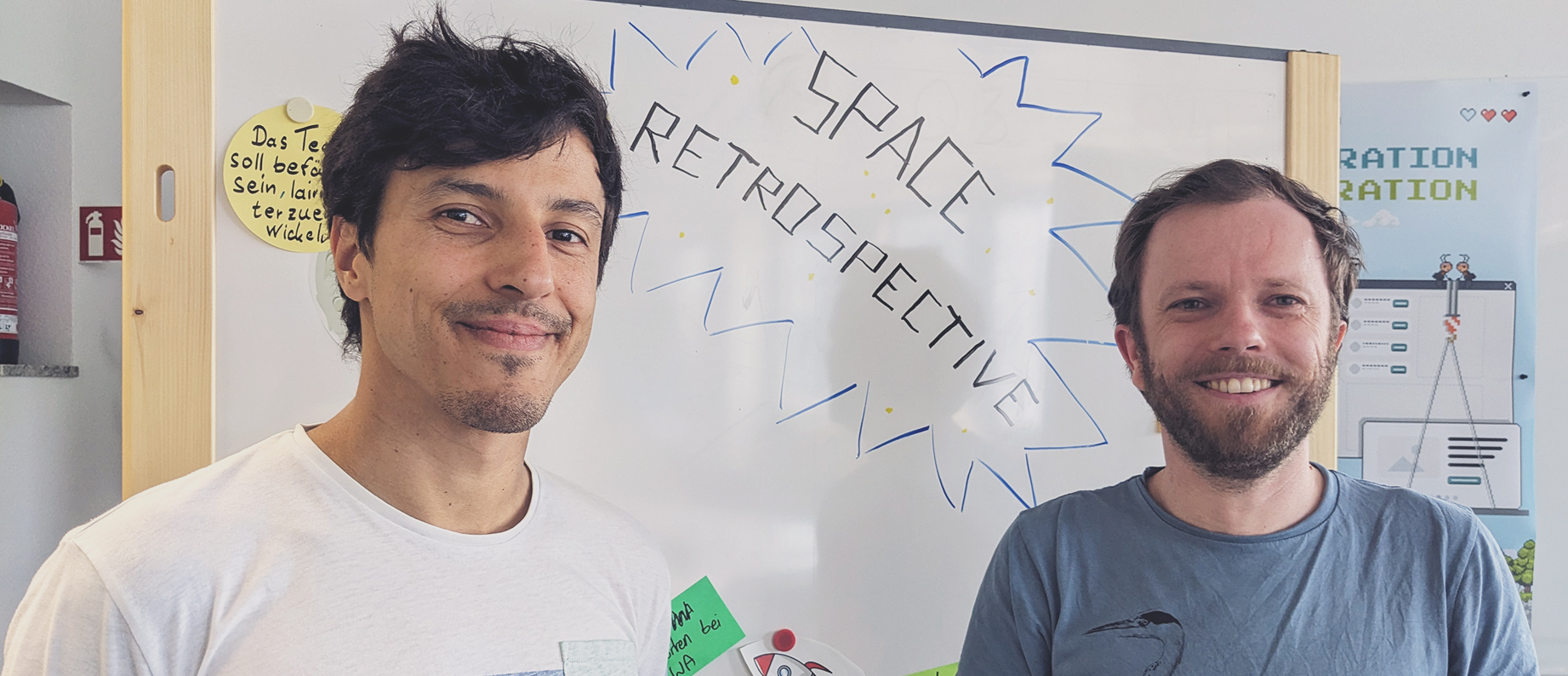
Our Master's module ‘Agile Development of Application Systems’ at Martin Luther University Halle-Wittenberg finally started its second round on 11 April!
Thanks to the intensive preparation of our Xperten last year, the lectures have been efficiently updated and optimised. This time, too, the hybrid concept of the module is based on a theoretical part, which takes place online, and a practical part, which is carried out on our premises.
In the first two remote lectures, our experts introduced the basics of agile software development, with a special focus on Scrum. The third lecture then focussed on the importance of agile project management for the development of a successful product.
The fourth lecture then focussed on the practical application of Scrum. Some of our Xperts shared their experiences from various Scrum roles and discussed what knowledge they would have liked to have acquired back in their university days.
What did our Xperts realise after the theoretical part?
That online lectures always pose a number of challenges and that our Xperts would definitely be tempted to hold the lectures on site in future. To ensure sufficient interactivity in the online lectures, tools such as Mentimeter were used and student feedback was continuously incorporated.
On the first practical day at our premises, it quickly became apparent that there was no lack of motivation and initiative on the part of the students.
After our experts led the first Scrum events themselves in order to show the students what is important, they now have the opportunity to try out the various roles of the Scrum framework and organise a Scrum event on their own.
We are excited to see how they will perform as Scrum Masters and Product Owners!
The entire project is centred around the question ‘How do we work?’. For this reason, the focus is not only on the result of the development work, but above all on the process, which accounts for 75% of the assessment.
It is therefore no wonder that the students believe that this project work is different from other university projects.
In their opinion, this is mainly due to the fact that expectations are clearly communicated from the outset and everyone takes responsibility as a result.
Specifically, this year the students are continuing to work on last year's project and developing new features for the ‘lairn’ tool, which can be used to generate and solve an exam preparation quiz with the help of AI.
However, we don't want to give too much away here yet, as there will be a detailed review once the module is complete.
We are very proud of the results so far and look forward to the upcoming practical events and the lively dialogue with the students.